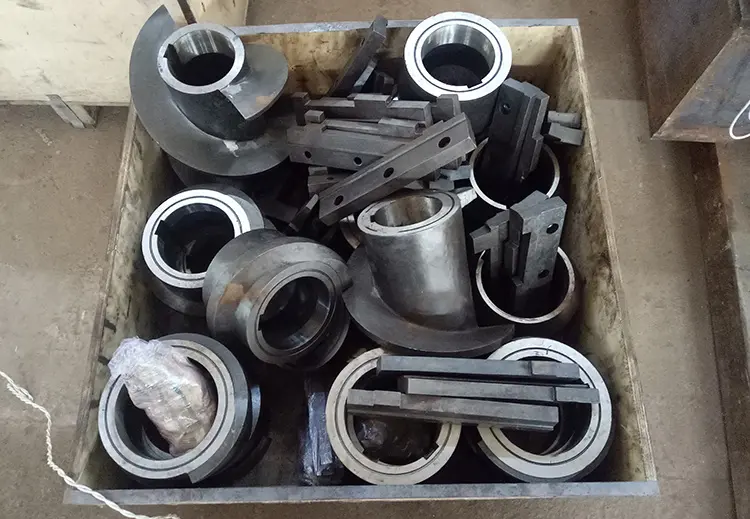ডিসে. . 19, 2024 17:48 Back to list
Manufacturers of Refined Animal Oil Production Units for Industrial Use
The Importance of Animal Oil Refined Units in the Manufacturing Industry
The manufacturing sector has long relied on various types of raw materials, one of which is animal oil. Refined animal oil units play a critical role in several industries, including food production, cosmetics, pharmaceuticals, and biofuels. This article delves into the significance of animal oil refined units, their manufacturing processes, and their applications in modern society.
Understanding Animal Oils
Animal oils are fats derived from the adipose tissue of animals. Common sources include beef, pork, lamb, and poultry, but also fish and seafood. These oils are rich in triglycerides, which consist of glycerol and fatty acids. When refined, animal oils undergo processes to remove impurities, resulting in a product that is safer for consumption and more versatile for use in various applications.
The Refining Process
The refinement of animal oils is a complex procedure that typically involves several stages, including rendering, degumming, neutralization, bleaching, and deodorization.
1. Rendering This initial phase involves melting down animal fat, which can be done using heat or steam. The method selected often depends on the type of oil and the desired quality.
2. Degumming After rendering, the oil is subjected to degumming to remove phospholipids and other impurities. This is essential for improving the stability and quality of the oil.
3. Neutralization The next step involves neutralizing free fatty acids, which can give the oil an off-flavor and reduce its shelf life. Chemical or physical methods can be utilized, but chemical neutralization is more common in large-scale operations.
4. Bleaching To achieve the desired color and remove remaining impurities, bleaching clays or activated carbon are used. This step is vital for producing oils that are appealing in color and quality for consumers.
5. Deodorization Finally, deodorization removes any unwanted odors and flavors through steam distillation or vacuum processes, resulting in a neutral oil that can be used effectively in various applications.
animal oil refined unit manufacturer

Applications of Refined Animal Oils
Refined animal oils have a wide array of applications across multiple industries
1. Food Industry Refined animal oils are essential in food production, particularly in frying oils, margarine, shortening, and baked goods. Their high smoke points and stability make them ideal for frying and cooking, imparting flavors and enhancing textures.
2. Cosmetics and Personal Care The cosmetic industry utilizes refined animal oils in products like soaps, creams, and lotions. These oils are often favored for their emollient properties, which help to keep the skin moisturized and supple. Additionally, animal oil derivatives can serve as a base for fragrances and other cosmetic additives.
3. Pharmaceuticals In the pharmaceutical sector, refined animal oils are used in medicinal formulations, serving as excipients for drug delivery systems. They can enhance the absorption of active ingredients and improve the efficacy of solid dosage forms.
4. Biofuels In recent years, there has been a growing interest in using refined animal oils for biofuel production. These oils can be converted into biodiesel, offering a renewable energy source and a more sustainable alternative to fossil fuels.
Environmental Considerations
While animal oil refining has numerous benefits, it is essential to consider the environmental impact of sourcing and processing these oils. Sustainable practices, such as sourcing from ethical farms and minimizing waste during production, are paramount for reducing the ecological footprint of the industry. Additionally, the development of alternative sources of animal oils, such as aquaculture or urban agriculture, could further mitigate adverse environmental effects.
Conclusion
Animal oil refined units are an integral component of multiple industries, providing valuable raw materials for food, cosmetics, pharmaceuticals, and energy production. Understanding the refining process and the diverse applications of these oils highlights their importance in modern manufacturing. With a growing focus on sustainability and ethical practices, the future of animal oil refining may continue to evolve, offering opportunities for innovation and environmental stewardship. As we move forward, it will be crucial to balance industrial needs with ecological considerations, ensuring responsible production and consumption of animal oils.
-
Leading Food Oil Refined Unit Companies | Quality & Efficient Solutions
NewsAug.27,2025
-
Expert Food Oil Refined Unit Companies | Advanced & Efficient Refining
NewsAug.26,2025
-
Food Oil Refined Machine Companies: High-Efficiency Oil Refining
NewsAug.25,2025
-
Popular Commercial Oilseed Crushing Machinery | High-Yield Oil Expeller Press
NewsAug.24,2025
-
Food Oil Refined Unit Companies: Leading Manufacturers & Exporters
NewsAug.23,2025
-
Expert Oil Filter Machine Service & Solutions | Quality & Reliability
NewsAug.22,2025
